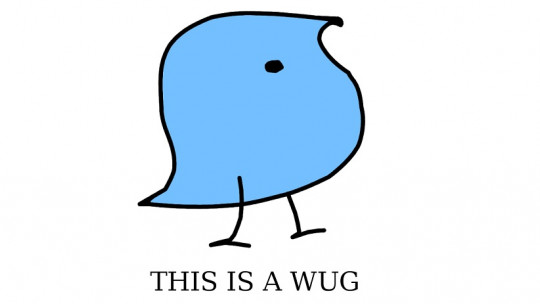The language we use with the little ones in the house can have consequences on their development. So, what phrases should we not say to our children? Find out.
There are certain words that mothers and fathers say to their little ones, many of them expressions so deeply rooted in the collective ideology that they are passed from one generation to the next, those negative sentences that, when we say them for the first time, they make us exclaim to ourselves “God, I’m becoming my mother-father!”
The vast majority of phrases for children They have no major significance, many of them are satirized and become comical, almost caricature-like, but there are a few that, despite their harmless appearance, used repeatedly and carelessly can cause great harm to our parent-child relationship. to. In this short article, we wanted to compile seven of the ones that, in our opinion, we should avoid, as well as their psychologically healthier alternatives.
Phrases to children that you should avoid
There are a series of expressions or negative sentences What you should avoid if you want your child to grow up with excellent mental health. Among the most common are the following.
1. “If you do that I won’t love you”
Above all, minors must understand that affection, filial paternal love, is not something ephemeral, fragile and perishable, but rather it is something solid, firm and unconditional. When we say one of these negative sentences as “I’m not going to love you“, we unintentionally convey that our relationship is like a glass cup that will break at the slightest blow. Often, people who have heard this phase are often anxious in their relationships, incapable of anger, whether legitimate or not. , and with great difficulty in managing a conflict.
What can we do?: Replace one of these harmful phrases like “If you do this I won’t love you” instead of “If you do this I’ll be sad” or “If you do this I’ll punish you.” If the child criticizes that he is not loved because he is punished, he is pointed out that love and punishment do not go hand in hand, and that sometimes, the people who love us do not act as we would like.
2. “Give Aunt Manoli a kiss”
Although we would often like to, we cannot expect our child to develop automatic affection for those people we love, like or simply like. Of course, you have to demand cordiality, not liking that person (or being indifferent) does not excuse you not to greet them, but trying to force the minor to give a kiss to the aunt, grandfather or neighbor , generally has a paradoxical effect. Do we like something because someone tells us we have to like it? Probably not. Probably, in fact, we take an aversion to what we are told we should like. The same thing happens to children. It is for this reason that one of these typical phrases to children They can have an effect opposite to what we want.
If, in addition to instructing them to give a kiss or a hug to a family member or friend, we reward that behavior (with a candy, pay, etc.), we are setting a dangerous precedent and teaching them to instrumentalize the relationship, that is: “I am interested in having relationships to the extent that they will provide me with a direct benefit or advantage”.
What can we do?: First of all, respect the wishes and times of the minor when expressing affection. In this type of situation, we can invite you to simply greet the other person, without any indication of how you should do it, allowing them to interact spontaneously without restricting their freedom. In this way, we will convert one of these harmful phrases in a subtle way of indicating that you have autonomy to express the effect towards others.

3. “I’m going to spank you” or “Don’t talk to me so I’ll cross your face”
Physical punishment attracts many disapproving glances today, but what parent has not been tempted to resort to spanking or slapping when the child in question becomes unbearable, or has directly taken action? It is completely normal, but that does not mean that it is not harmful. When we get tired of talking and directly hit, no matter how slight the blow, we are sending the dangerous message of “I am going to win this discussion. Not with intellect or authority, but with violence.” It is not uncommon for children to imitate this behavior, and when they cannot get their way they use violence in self-defense. To make matters worse, it undermines our authority, and gives the child the feeling that he has triumphed, because his father / mother “Has had to resort to the nuclear bomb” to stop him. In this way, resorting to one of these messages for children It is undoubtedly a mistake that parents should avoid.
What can we do?: Make it clear that each action has a consequence, positive or negative, clearly marking what it is but avoiding physical violence.
4. “If you continue like this you will win it”
For children this is a terribly confusing message. On the one hand, there is no clear consequence, “I’m going to earn what?”, and on the other, we are not establishing a very important limit: the amount. “If you continue like this” does not clarify how much time remains until the consequence or punishment is applied – and that is if it is applied -, which generates confusion, and sometimes even the feeling that parents speak without thinking. Therefore, one of these phrases to children It is something we must avoid at all costs.
What can we do?: First of all, ask the reason that led our child to act this way. Children, especially younger ones, are innocent and unpredictable, and sometimes they do things just to see what effect they have. Then, establish a consequence, a clear and concise punishment in a specific situation. “Next time you paint on the wall, you won’t go to the park for two days.” In that way, the message for children It is much more understandable and clear.
5. “Don’t do that”
A priori, the instruction behind one of these phrases to children seems simple: “Don’t do that”, “Leave it”. It doesn’t seem to have any kind of complication, right? What if I told you “Stop smoking”? Would you stop smoking immediately? The instruction is simple, isn’t it? So what is the problem? That stopping doing something does not have the same appeal as doing it.
What can we do?: Following the example of quitting smoking, “Instead of lighting a cigarette, chew a piece of gum.” Behaviors can rarely be made to disappear, it is much smarter to generate what can be done. “You can’t paint on the walls, because you can’t erase them later and you have to paint them. Why don’t you paint on this sheet of paper or this cardboard?” In this way, instead of giving one of these negative phrases to your children you will be giving them a solution to their problems.
6. “It’s your problem, you fix it” and “If they hit you, you hit”
These two harmful phrases , which we have frequently heard in cases of relatives of victims of bullying, form what some psychologists call “the tandem of death.” Of course, minors should not be allowed to depend on us to solve all their problems. Childhood, and especially adolescence, are ages in which the development of autonomy is very important. However, we must keep in mind that many times, especially during puberty, if we receive a request for help it is because the minor perceives the situation as truly overwhelming or feels without the tools to cope.

We must not forget that even for the most rebellious adolescents, fathers and mothers are authority figures, a higher authority, even when they say they do not recognize us as such. Therefore we must take into account that these phrases to children They can be more than negative in facing their problems in life. How would we feel if after being attacked we went to report it and the police told us “If they hit you, why didn’t you hit them?”
What can we do?: First of all, listen to the problem, without dramatizing it but without making light of the issue. Make it seem that we care about what they are not telling, so that they feel that we support them. If after that we see that it is not necessary to get involved, we can point out the different skills you can use to deal with the problem, or different strategies to solve it. If, on the other hand, we have to take matters into our own hands, try not to leave your child out of the problem and solve it on your own, involve him/her and work with him/her, helping him/her only when necessary. In this way, learn how to deal with that situation in case it happens again in the future.
7. “Ask your mother/father”
In these types of situations, we often find ourselves with a power imbalance in which one of the members of the couple has more authority, power or control over the children than the other. In many cases, this type of phrases to children They leave a negative message about the figure of one of their two parents.
What can we do?: A couple has, above all, the same responsibility and authority over their children, so the first person they turn to has to be the one who provides an answer. It is necessary that the communication between the two be fluid and attentive, to ensure that the answer given by one of them is supported by the other (although in private, if they do not agree, it will be You can chat about the need to act differently next time.)
If you are a father or mother, have you recognized yourself in any of the harmful phrases previous ones and you have still read this article to the end, I congratulate you. Parenting is a tremendously demanding and complex process, and these expressions are so embedded in our brains that we repeat them like the catchphrase of a character in a comedy. Therefore, on many occasions when we find ourselves unable to face a situation with our children, it is advisable to go to a mental health professional.
Be a mother or father It is not an easy job, nor do the children come with an instruction manual nor do we have access to all the information we would like. So first of all, although some of these phrases escape us from time to time, this does not mean that we are bad parents: we do what we can with the resources we have; and that the important thing is to work, search and strive for improvement, and if you have read this entire article, it means that you are a person committed to your parental growth, and that you should feel proud of it.









